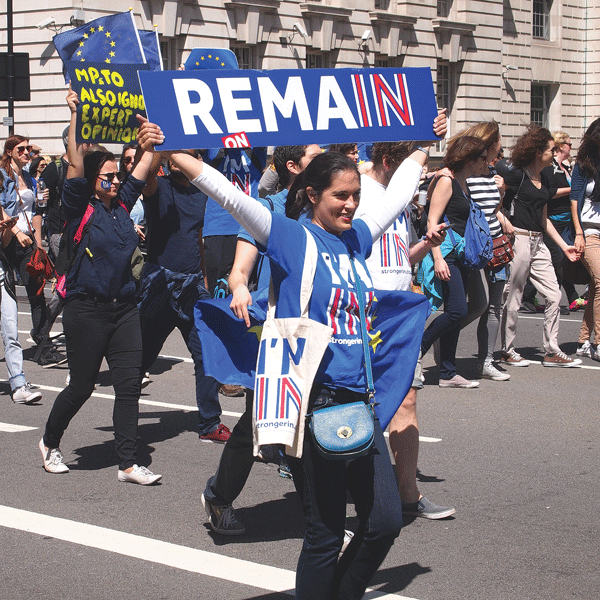Back in 2001, I was invited to a conference in Panchgani which was attended by a very senior French statesman. He was part of the group that drafted the European Constitution which was later abandoned because Denmark more-or-less vetoed it in a referendum on its ratification. The EU, at that time around had 460 million people, of whom many wanted that constitution. Denmark’s population then was 5.7 million!

During lunch one day at the conference, I asked him if he had looked at the Indian Constitution because he could get some insights on how to create a successful federation. He said he might, but added somewhat patronisingly that Europe was very different from India.
I replied that the problems India faced in 1947 are similar to yours now because you need to first create a political union for the economic one to last. But he simply turned away to talk to someone else. I had been put in my place, not a novel experience for me when engaging with the Europeans. They simply assume they are wiser.
Looking back now, and for what it is worth, I will repeat my gyan to the Europeans who, despite their wonderful science, economics, philosophy, music, art, etc, are politically the most naive group of people on earth. They are outdone only by the supercilious English. They deserve each other.
The Scots and the Irish, who like us have been at the receiving end for centuries of English perfidy, seem to be far more sensible. They see the wisdom in that old saying, “if we don’t hang together, we will hang separately.”
England, Pakistan, one and same
Not to mince words, through Brexit, the Johnson-Farage duo has done to Europe what Jinnah and Liyaquat Ali did to India. The latter claimed separateness on the grounds of religion. The former have claimed it on the grounds of ‘Englishness.’
The result, in either case, is the same — a likely partition. Ours was quick and painful; theirs will be slow and painful.
In 1947, most Indians didn’t want the partition but they didn’t have a choice. The Brits did have one now, but didn’t exercise it because only 36 per cent of the young amongst them went to vote even though they stood to lose the most.
The similarity between Britain and Pakistan’s approach to regional unity doesn’t end there. Just as Pakistan has been blocking SAARC, Britain has been creating problems for the EU, the biggest one being its refusal to join the common currency.
What has been left unsaid in all this is the real reason for this obduracy. The strong pressure to stay out of the Euro arose from something that the British will never admit: the need to not submit to EU discipline on money.
This pressure was presented as Englishness, sovereignty, anti- bureaucracy immigration etc. But at the bottom of it all lay the interests of Napoleon’s shopkeepers.
An article that appeared in Vanity Fair makes a simple point, that it is not Switzerland but Britain that controls a whole lot of British-linked tax havens like Jersey, Guernsey and the Isle of Man, the Caymans, British Virgin Islands (BVI), Bermuda, etc. There are other places too “with deep and old links to London.”(http://www.vanityfair.com/style/society/2013/04/mysterious-residents-one-hyde-park-london).
Not mincing words, through Brexit, the Johnson-Farage duo has done to Europe what Jinnah and Liyaquat Ali did to India.
These links, says the article, “feed vast financial flows — clean, questionable, and dirty — into the City,” something that has been annoying the Europeans no end. The EU directives on money laundering — four so far — give us a sense of it all.
To understand the campaign for Brexit, therefore, you also have to understand the imperatives of that square mile called the City of London. Its power should never be underestimated.
What now?
Economists have long ago worked out the consequences of such strategies. One is called the “grim trigger strategy” and the other, the “stag hunt strategy.”
The grim trigger strategy is designed to promote cooperation. It says that as long as you cooperate,
I will cooperate. If you ever stop cooperating, I too will do so and never ever cooperate again (hence the ‘grimness’). The idea is that the long run loss that you will face if you stop cooperating, outweighs the immediate gain you get from your behaviour. In short your losses will be permanent.
The stag hunt thing is again also about cooperation. If the hunters cooperate and hunt together they stand a better chance of killing a big deer for dinner than if they don’t. In fact, if they hunt separately, they will get only a rabbit.
Britain has adopted both strategies at the same time which must count as one of its biggest follies of all time.






